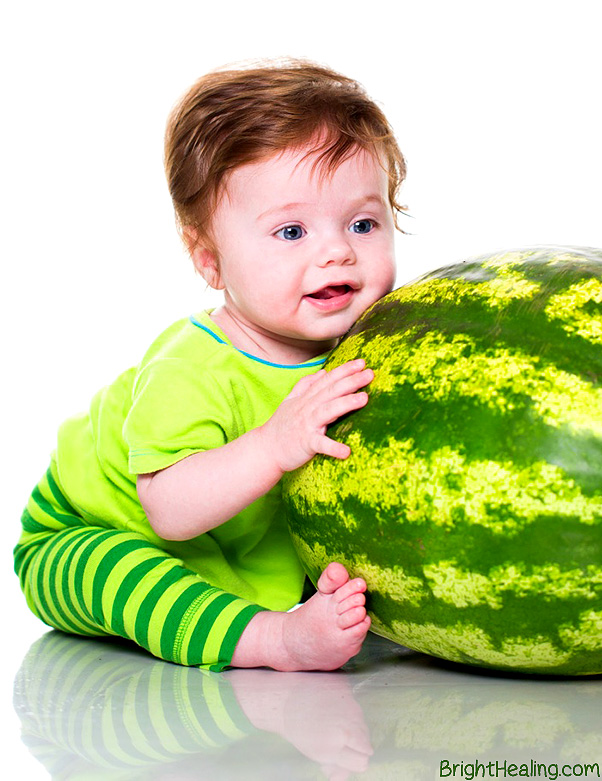Can you reduce the risk of allergy?
If you have a family history of allergy, try to make sure he is exclusively breastfed for at least the first 4 months and preferably 6 months, to reduce the risk that he will become allergic to foods. There is not enough evidence that you avoiding foods in pregnancy or breastfeeding will reduce the risk of your baby becoming allergic. Unless your baby is already reacting, then don’t restrict your diet.
Your baby should start solids at around 6 months, mainly as he will need a new source of iron and zinc in his diet. As far as allergies go, it is thought to be best to introduce the major allergenic foods as soon as possible, provided your baby is not already showing reactions to the particular food. These foods include cows’ milk, soy, wheat, eggs, nuts and fish. It is also best for your baby to continue breastfeeding as new foods are introduced as a way to reduce the risk of allergy.
How are allergies and intolerances diagnosed?
Parents who think their child is allergic or intolerant to a food should speak to their GP immediately and tell them about the symptoms and recall the food consumed by the child.
Depending on the severity of the reaction the GP will either refer the child to a dietitian straight away or advise keeping a full dietary diary for a fortnight with detailed notes on the timings and seriousness of the symptoms.
The diary often highlights the problem but a second visit to the GP will be necessary to see if the child needs help from a dietitian and further tests. Suspicions over a certain food can also be confirmed with a ‘skin prick’ test which releases a tiny amount of the product into the skin.
If it is the offending food it will cause a reaction and within minutes the child’s skin will become itchy, red and swollen and a ‘weal’ will appear – like the reaction to a stinging nettle. Blood tests can show whether high levels of antibodies are present within blood – indicating an allergic reaction.
Angela Johnson, Pediatric Dietitian for Portsmouth Hospitals NHS Trust, said: ‘If a parent suspects their child has a food allergy they should seek medical advice and speak to their GP.
‘They should not exclude foods from their child’s diet without seeking professional advice. It is vital to ensure their child’s diet remains nutritionally adequate for normal growth and development.’
Protecting Baby Against Food Allergies: Easy Does It
Many pediatricians still recommend waiting until your baby is a bit older — 9 or 10 months — before offering the 8 allergenic foods. Even if there’s no added risk of causing an allergy, they note that an allergic reaction may be easier to manage in an older baby. Some pediatricians, concerned about the particular severity of allergic reactions to peanuts and shellfish, still suggest staying away from them until your child is at least 3 years old.
Whole cow’s milk should not be given to babies younger than 1 year of age, because the proteins in whole milk can irritate the stomach. However, yogurt and soft cheeses are fine, because the proteins in these dairy products are broken down and less likely to cause tummy trouble. You should also wait until at least age 1 (some experts say age 2) to introduce honey, which can cause a potentially serious disease called infant botulism.
